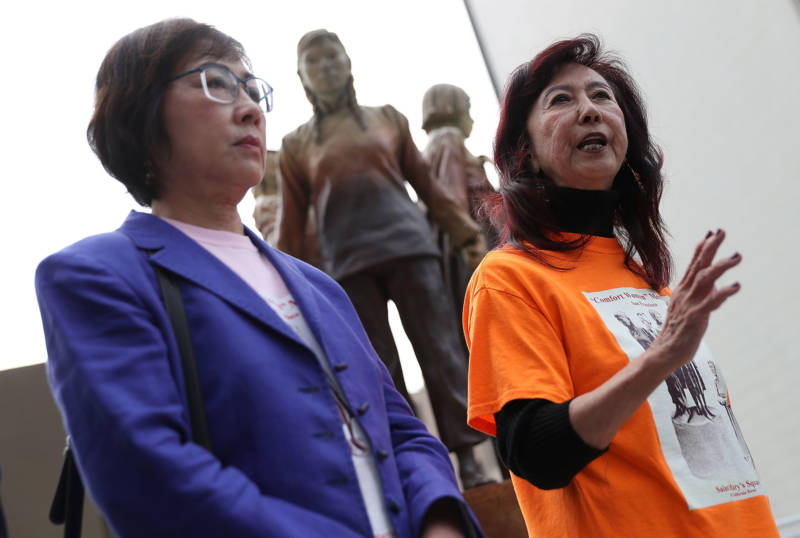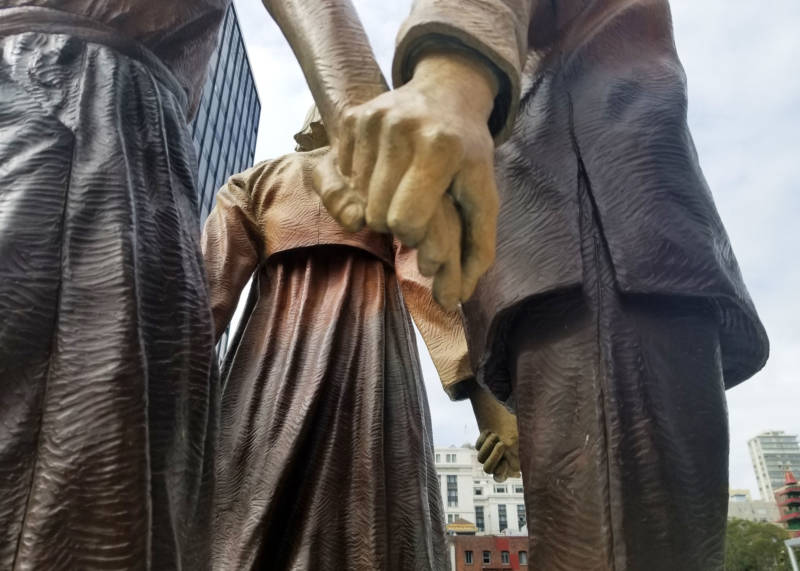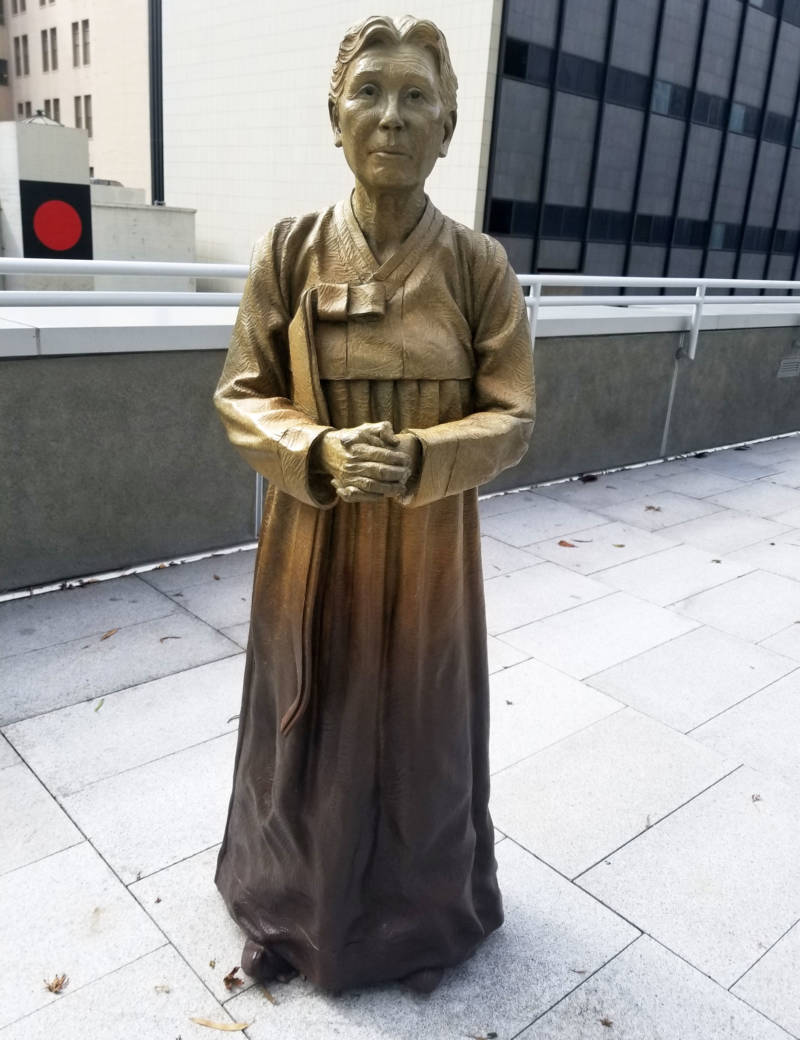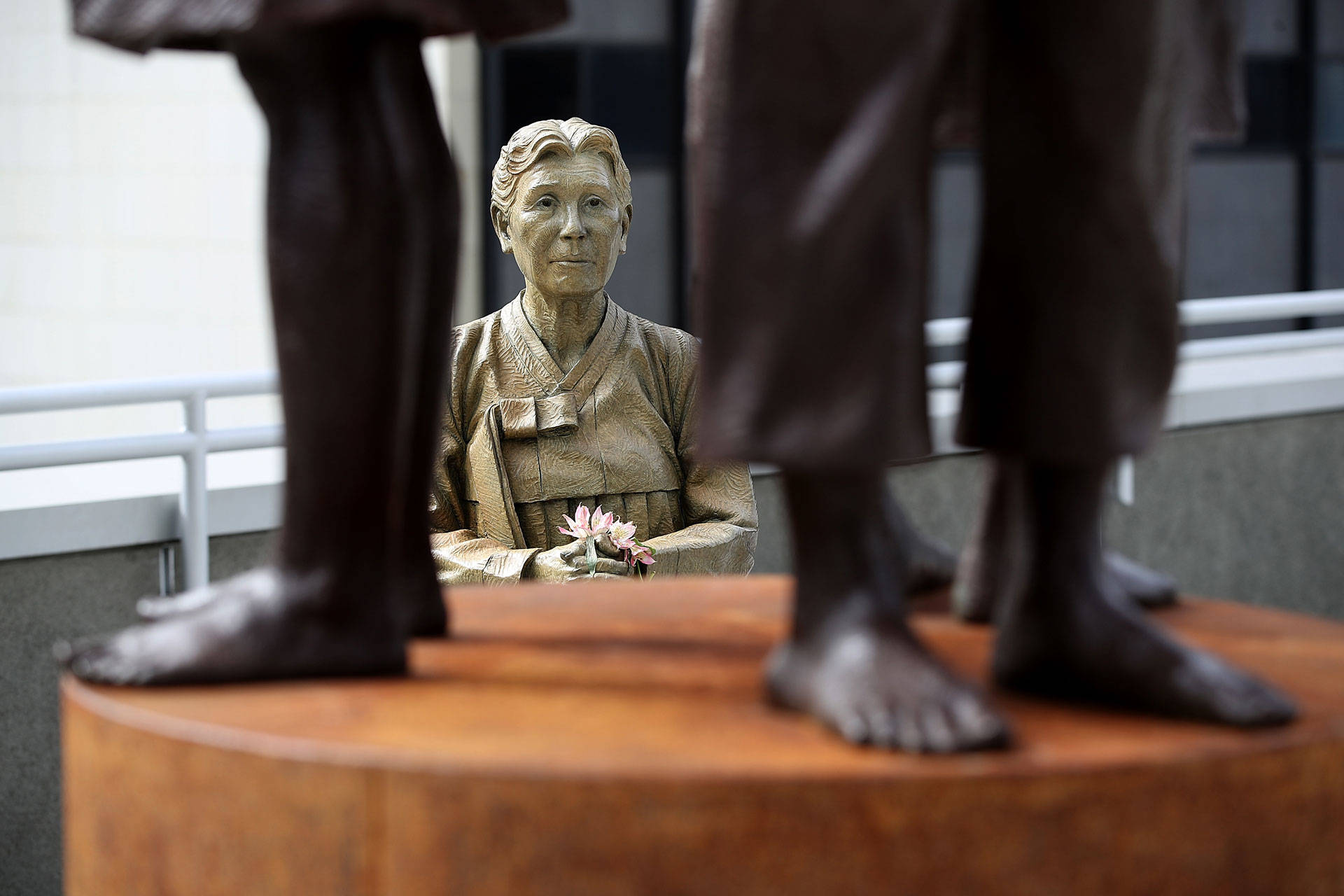The Japanese city of Osaka is ending its sister-city relationship of 61 years with San Francisco to protest a memorial to “comfort women.”
The memorial, called "Column of Strength," is located in St. Mary’s Square in San Francisco's Chinatown. Three young girls stand on a pedestal in a circle, holding hands. Their expressions are steadfast. An older woman looks on from the side.
The girls in the memorial, which was unveiled just over a year ago, represent the hundreds of thousands of women and girls from 13 countries who were sex-trafficked by the Japanese Imperial Army during World War II, many of them Korean and Chinese.
When the memorial was erected in 2017, Osaka Mayor Hirofumi Yoshimura said the statue was "Japan bashing." On Tuesday, he sent a 10-page letter to Mayor London Breed withdrawing from the sister-city partnership.
“Why is the mayor of Osaka so afraid of this memorial?” asked Lillian Sing, co-chair of the Comfort Women Justice Coalition at a press conference on Wednesday.
“He’s afraid of truth. Instead of facing history and recognizing what this memorial stands for, he’s like a coward escaping from reality."

Sing, who is Chinese-American, is a former judge who has dedicated her retirement to educating the public about comfort women. She says Yoshimura’s letter is a blessing in disguise because it sheds light on how important it is to tell this disturbing piece of Japanese history.
“Osaka’s mayor has helped us by bringing this [story] to an international level,” she said. “I hope this starts a conversation on what the comfort women history is all about, and why Japan needs to apologize.”
The majority of comfort women were forced into sexual slavery for Japanese soldiers at government-run “comfort stations.” Some were recruited by false advertisements for work as maids, factory workers and nurses. They were held as prostitutes and subjected to horrific conditions.

In 2013, Osaka’s former mayor, Toru Hashimoto, sparked international outrage when he said comfort women were part of a “necessary system to maintain military discipline.”
After his statements, the San Francisco Board of Supervisors adopted a resolution condemning Hashimoto.
"Unfortunately, Yoshimura has followed in the footsteps of his predecessor," said Julie Tang, the other co-chair of the Comfort Women Justice Coalition.
Tang said their coalition contains diverse Americans of Asian descent, including Korean, Chinese and Filipino — as well as many Japanese-Americans who want the Japanese government to admit its wrongdoing and history of colonial aggression.

The Japanese government’s apparent lack of remorse for the treatment of comfort women draws attention to the many ways in which powerful institutions respond to allegations of sexual violence — an issue that has taken American culture by storm in the #MeToo era.
The old woman looking up at the three younger girls in the Chinatown memorial represents Kim Hak-sun, a Korean woman who was the first to publicly speak out in 1991 about what happened to her while she was held captive as a sexual slave by the Imperial Japanese Army.
“Her testimony and the testimony of hundreds of comfort women actually changed history,” said Judith Mirkinson, president of the Comfort Women Justice Coalition.
“That’s what’s happening today, too. Sexual violence, sexual harassment and rape doesn’t go away. It lives forever. And that’s why there has to be justice."
